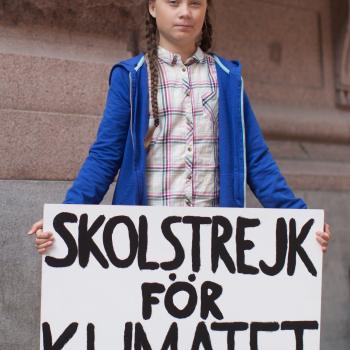The Adventurous Lectionary – Sixteenth Sunday after Pentecost – September 25, 2022
Jeremiah 32:1-3a, 6-15, Psalm 91:1-6, 14-16, 1 Timothy 6:6-19 , Luke 16:19-31
Today’s readings could be described by the South African phrase, “ubuntu” or “I am because of you” or “we are because of one another.” In the context of rising social, economic, and racial divisions, and the normalization of hate speech by political leaders and heartlessness in governmental decision-making, ubuntu proclaims the essential unity of life and disastrous consequences of division for the oppressor as well as the oppressed.
Jesus’ parable speaks of the apparently unbridgeable gulf between the rich and the poor and invites us to close every human-created gap: wealth and poverty, in and out, saved and unsaved, faith and practice, and choose to live in a world without outsiders, where everyone has enough for survival and the hope of flourishing. A rich man appears to be lost – indeed lost forever – because he failed to hear the cries of a poor beggar. In the spirit of Mary’s Magnificat, the wealthy man plummets to the depths while the impoverished man is lifted, receiving all the blessings he missed in this lifetime. This astounding spiritual and economic role reversal is a call to transformation. Jesus’ parable is a wakeup call for societies as well as individuals and a challenge to see if our personal lives and politics and economics create greater, rather than lesser separation, between the rich and poor, and insiders and outsiders. The parable reminds us that the chasm is a matter of spirituality as well as greed and inattentiveness.
In “No Future without Forgiveness,” Desmond Tutu defines Ubuntu in the following manner: “Ubuntu […] speaks of the very essence of being human. [We] say… ‘Hey, so-and-so has ubuntu.’ Then you are generous, you are hospitable, you are friendly and caring and compassionate. You share what you have. It is to say, ‘My humanity is caught up, is inextricably bound up, in yours.’ We belong in a bundle of life. We say, ‘A person is a person through other persons.’….A person with ubuntu is open and available to others, affirming of others, does not feel threatened that others are able and good, for he or she has a proper self-assurance that comes from knowing that he or she belongs in a greater whole and is diminished when others are humiliated or diminished, when others are tortured or oppressed, or treated as if they were less than who they are.”
Ubuntu reflects the grace of interdependence, definitive of God’s world, in which we recognize that our lives are completely dependent on others: institutional structures, the accidents of birth, family of origin, national origin, the hard work of others, including forgotten and impoverished people, the love of parents, grandparents, and teachers, and the gentle – yet persistent – providence of God. No one of us arises alone, and as the pandemic revealed the most “essential” workers are the unsaid heroes, undocumented workers who provide us with food and care for our sick and aged. The tragedy of the story is that the wealthy man had the resources to uplift his “neighbor” and his whole community but was insentient and uncaring. Perhaps, he saw his wealth as a matter of entitlement and effort and the poverty of the beggar as a matter of personal laziness or lack of initiative. His failure to see and hear, to empathize, created a gulf in this life that echoed into eternity. (Sadly, the wealthy don’t have to justify how they use their wealth, while the impoverished and unemployed, or the working poor, have to justify the slightest luxury!)
This very prophetic parable, reflective of the prophets of Israel, and their vision of an alternative reality to our current state of affairs, reminds us that God is concerned with the details of our lives – our attitudes toward the poor, “nuisances and nobodies,” addicted, and homeless persons – and that those whom we neglect or intentionally humiliate by governmental policies are also God’s children. God is also concerned about our wanton planetary destruction for the sake of short-term profit and prestige. There is a price to pay for our insentience and neglect, our apathy and complacence toward others’ pain and destitution: while I don’t see the price as eternal damnation for the apathetic and heartless, the price is alienation from God’s highest call in our lives, and as Amos threatened, “a famine of hearing God’s word.” This is a profoundly political parable: for to Jesus and the prophet, there is only one world, the spiritual and material are one, there is no difference between sacred and secular in God’s eyes.
God called the rich man to a simple spiritual practice that would have changed everything and awakened him to a new reality of connection of compassion: pause, notice, open, stretch, and respond in personal and political life. (For more on this practice, see Gerald May, “The Awakened Heart” and Bruce and Katherine Epperly, “Tending to the Holy: The Practice of the Presence of God in Ministry.”)
Wake up, listen, feel, and respond with generosity. “A person is a person through other persons” or “I am because of you.” What are we missing spiritually when we turn away from others’ pain? What spiritual depths emerge when we are empathetic rather than apathetic? While we realize that there are limits to generosity and empathy in the personal and interpersonal realm, and while we must make decisions about who we can best love and who we are most obligated to love, we are never released from the responsibility to feel and respond, and – to be honest – to experience an “uneasy conscience” about our spiritual, economic, and political limits in terms of kindness and generosity. We can sacrifice – live more simply – so that others may simply live. We can challenge our leaders to a politics of compassion for the vulnerable. That’s what it means to be human. That’s what it means to follow Jesus.
The choice to hear the cries of the poor and to observe our own attitudes and responses occurs moment by moment. It occurs as I pick up the newspaper or check my news feeds online. It occurs as I pay my bills and respond to the worthy causes that present themselves to me. It occurs in the stewardship of time and talent, that is, will my use of my gifts and resources bring greater or lesser beauty of experience to the world. It occurs as we choose to listen or turn away from the pain and joy of a grandchild, child, or children in our community. Our choices open the door for greater or lesser manifestations of God’s vision in the world. They bring greater or lesser beauty to God’s experience of the world. God rejoices or suffers as a result of our moment-by-moment decisions. Nothing is too large or small for God’s consideration, no one is left behind by God nor should anyone be left behind by us. (For a children’s conversation, you might look at Dr. Suess’ “Horton Hears a Who” – “a person’s a person no matter how small.”)
Though things seem dim in terms of our nation’s corporate and political responses to poverty and environmental destruction, the reading from Jeremiah tells us that there is always hope. In a time of national hopelessness, and we should not deny our hopelessness, and respond to life’s challenges even if we aren’t ultimately successful.
We can change our ways, personally and corporately, and once again the nation will flourish for all. We can choose to hear the cries of the poor, the grief of refugee and asylum seeker parents, the anxiety of the working poor, the despair of homeless persons, and our own sense of hopelessness as we look at the future. We can also try to see Christ in the least of these, as well as Christ in the most cynical, hate-filled, and manipulative political leaders. Despite their moral bankruptcy, they too are God’s children, and deserve our prayers.
The words from Timothy challenge us to a life of contentment, based on our dependence and the intricate interdependence of life. We came into the world with nothing, and rich or poor, we will depart with nothing. We depend on others as well as our own initiative to have a good and faithful life. Spiritual contentment comes from placing our relationship to God and others before acquisitiveness and ownership. Our spiritual journeys are fulfilled in compassionate action and full-hearted awareness of the poor. Peace is grounded in an enlargement of the spirit – an end to individualism and greed – that places others’ needs on par with our own and challenges the deathful individualism of nation-first with the well-being of planet first.
The adventurous preacher is called to open her or his own heart and invite the congregation to ponder places we need to open our hearts to those we are tempted to neglect, judge, or forget. Awareness is the first step to empathy and action as partners with God in healing the earth.
+++
Bruce Epperly is a pastor, professor, and author of over sixty books, including THE ELEPHANT IS RUNNING: PROCESS AND OPEN AND RELATIONAL THEOLOGY AND RELIGIOUS PLURALISM; MESSY INCARNATION: MEDITATIONS ON CROSS IN PROCESS; FROM COSMOS TO CRADLE: MEDITATIONS ON INCARNATION; PROPHETIC HEALING: HOWARD THURMAN’S VISION OF CONTEMPLATIVE ACTIVISM; and RESTLESS SPIRIT: THE HOLY SPIRIT FROM A PROCESS PERSPECTIVE.












